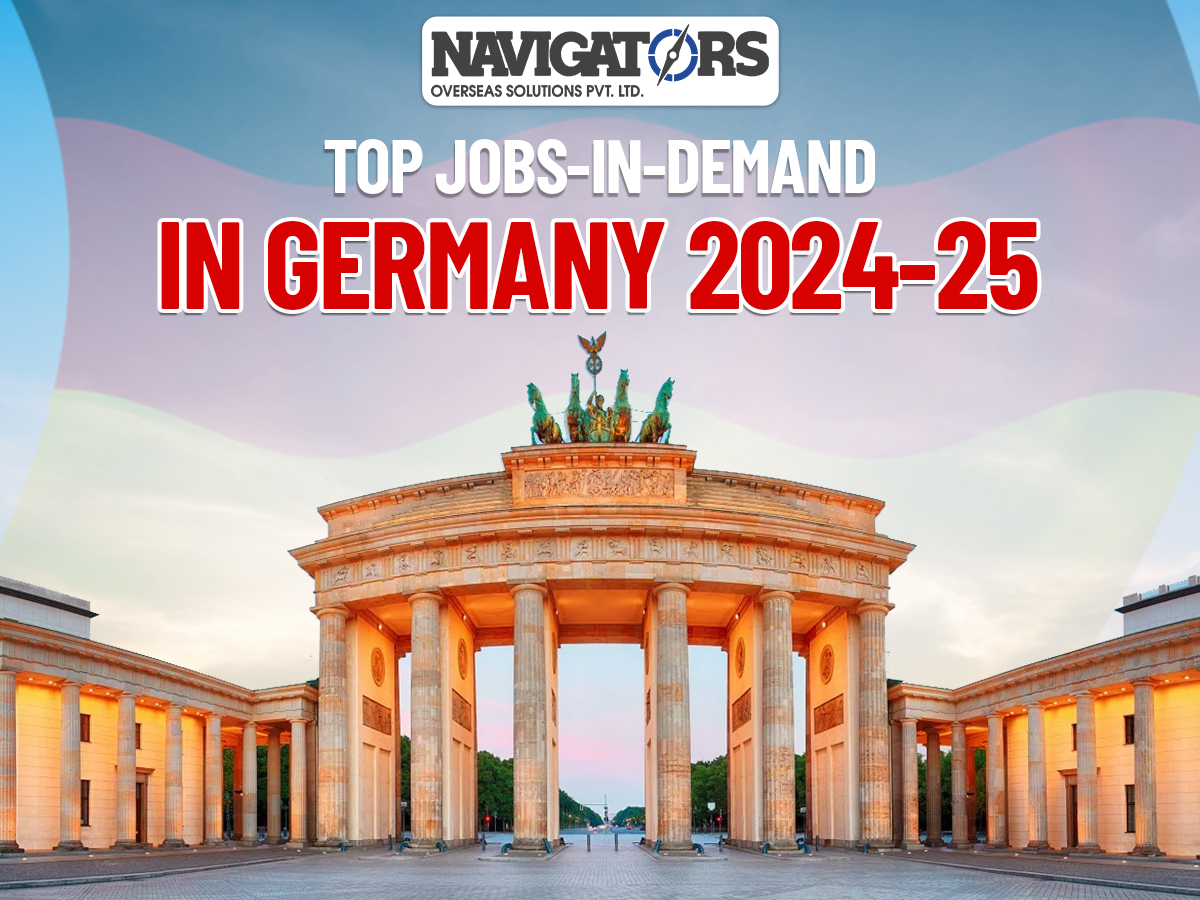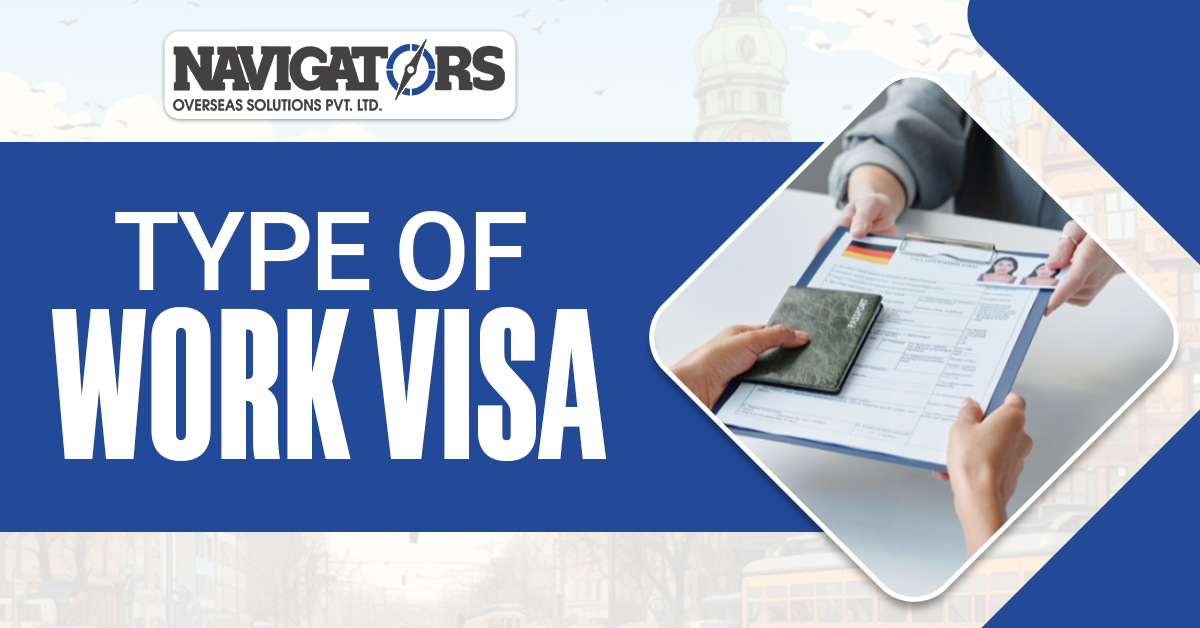- SCO 99, Sector 44-C, Chandigarh, India-160047
- +91 98090 90908
- navigators@ymail.com

The job market in Germany is advantageous for both employers and job seekers. With a strong economy, low unemployment rates, and a focus on skilled labor, the country offers promising prospects. There is a rising demand for skilled professionals across various sectors, particularly in cities such as Berlin, Munich, Frankfurt, Hamburg, Cologne, Leipzig Stuttgart, Darmstadt, and Stuttgart. Germany, the world’s fourth-largest economy, provides numerous job opportunities for both domestic and international professionals. Working hours are relatively flexible, with a standard of up to 48 hours per week. In this blog, we are talking about benefits, job scopes & type of job seeker visa in Germany.



IT & SOFTWARE: Cities like Berlin and Munich are prominent tech hubs, featuring a wealth of startups and established companies that drive job growth. Key industries such as automotive, finance, and manufacturing depend heavily on advanced IT solutions, leading to a high demand for skilled professionals. The notable shortage of IT skills in the labor market creates numerous job opportunities for qualified candidates. Additionally, Germany’s strong focus on research and development in technology further fuels the need for IT experts.
FINANCE: Frankfurt, home to the European Central Bank, and Munich, a major financial center, attract global companies and offer a rich variety of job opportunities. Germany’s finance sector covers a broad spectrum of roles, including banking, investment management, insurance, financial analysis, and fintech. There is a robust demand for professionals skilled in financial analysis, risk management, compliance, and financial technology. Expertise in specialized areas such as data analysis and financial modeling is particularly highly sought after.
MANAGEMENT: As an integral part of the European Union, Germany’s international business environment offers numerous opportunities for management roles that require cross-cultural and global perspectives. Many global companies have their European headquarters or significant operations in Germany, which often require experienced managers to oversee diverse teams and projects.
SCIENCE & ENGINEERING PROFESSIONALS: Germany’s high demand for science and engineering professionals stems from its powerhouse industrial sector, renowned for cutting-edge advancements in automotive, machinery, and renewable energy. As a global leader in research and development, Germany continuously invests in technology and innovation, necessitating a skilled workforce to drive these initiatives. The country’s emphasis on STEM education, coupled with a robust export-oriented economy and ambitious sustainability goals, creates a dynamic environment where top-tier science and engineering talent is essential for maintaining competitiveness and spearheading future breakthroughs.
HEALTHACRE & NURSING: Healthcare and nursing experts like Registered Nurses, Old Care Specialists, Medical Practitioners are in high demand in Germany due to a confluence of factors: an aging population that requires more medical care, a growing need for chronic disease management, and a significant shortage of skilled professionals in the sector. Germany’s comprehensive healthcare system is under pressure to meet increasing patient needs, necessitating a robust workforce to deliver quality care. Additionally, government’s initiatives and investments in healthcare infrastructure aim’s to improve services, further driving the demand for qualified healthcare and nursing professionals to support these efforts and ensure effective patient care across the country.
HUMAN RESOURCE: Germany’s emphasis on organizational culture, employee well-being, and diversity drives the need for HR experts who can design and implement strategic HR initiatives. The integration of advanced HR technologies and the focus on creating inclusive and innovative workplaces further contribute to the demand for knowledgeable HR professionals to navigate these evolving challenges.
MARKETING & SALES: Germany’s dynamic and competitive market environment creates a continuous need for skilled marketing and sales experts who can drive growth and brand visibility on a global scale. By attracting global talent, Germany enhances its competitive edge and ensures that its companies remain agile and responsive in an increasingly interconnected world.
ACCOUNTING: Germany has a strong presence of multinational corporations, small to medium-sized enterprises (SMEs), and financial institutions, all of which necessitate skilled accountants to ensure accurate financial reporting, compliance with regulatory standards, and effective financial planning. The country’s stringent financial regulations and the need for transparency in business operations further drive demand for accounting professionals. Additionally, Germany’s emphasis on fiscal responsibility and its significant role in the global economy make accounting a critical field with ample job opportunities.
HOSPITALITY & FOOD SERVICES: Hospitality and food service jobs are plentiful in Germany due to the country’s thriving tourism industry, vibrant urban life, and strong cultural emphasis on dining and social gatherings. Germany attracts millions of tourists annually, driving demand for a wide range of hospitality services, from luxury hotels to casual dining establishments. Additionally, Germany’s rich culinary traditions and its diverse population foster a dynamic food service sector that continually seeks skilled professionals to meet the needs of both locals and visitors.

Germany offers several types of work visas to accommodate different employment situations and qualifications. Here’s a breakdown of the main types:
Each visa type has its specific application procedures, requirements, and conditions, so it is essential to choose the one that matches your employment situation and qualifications.